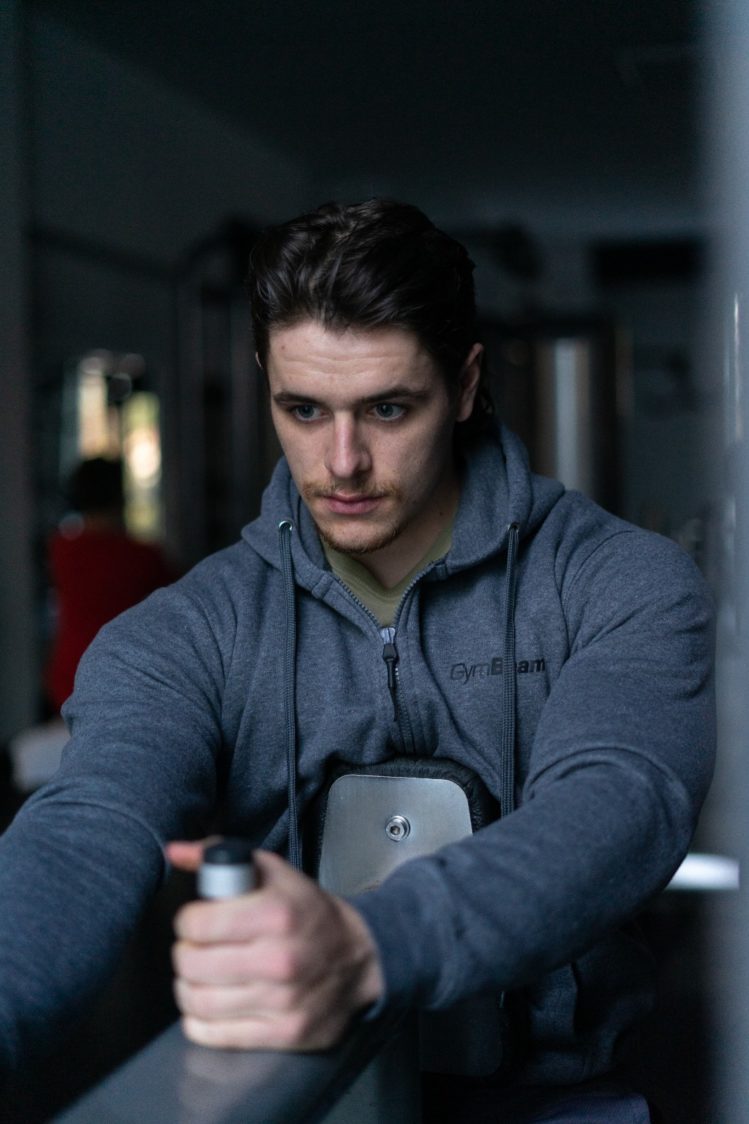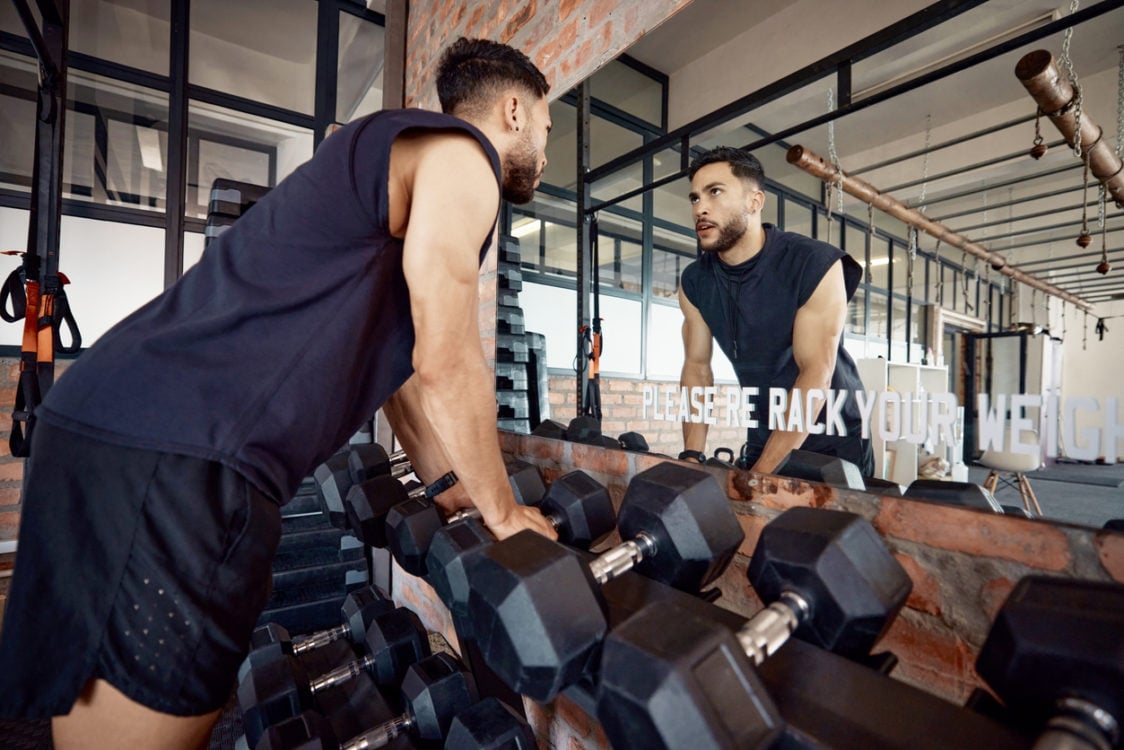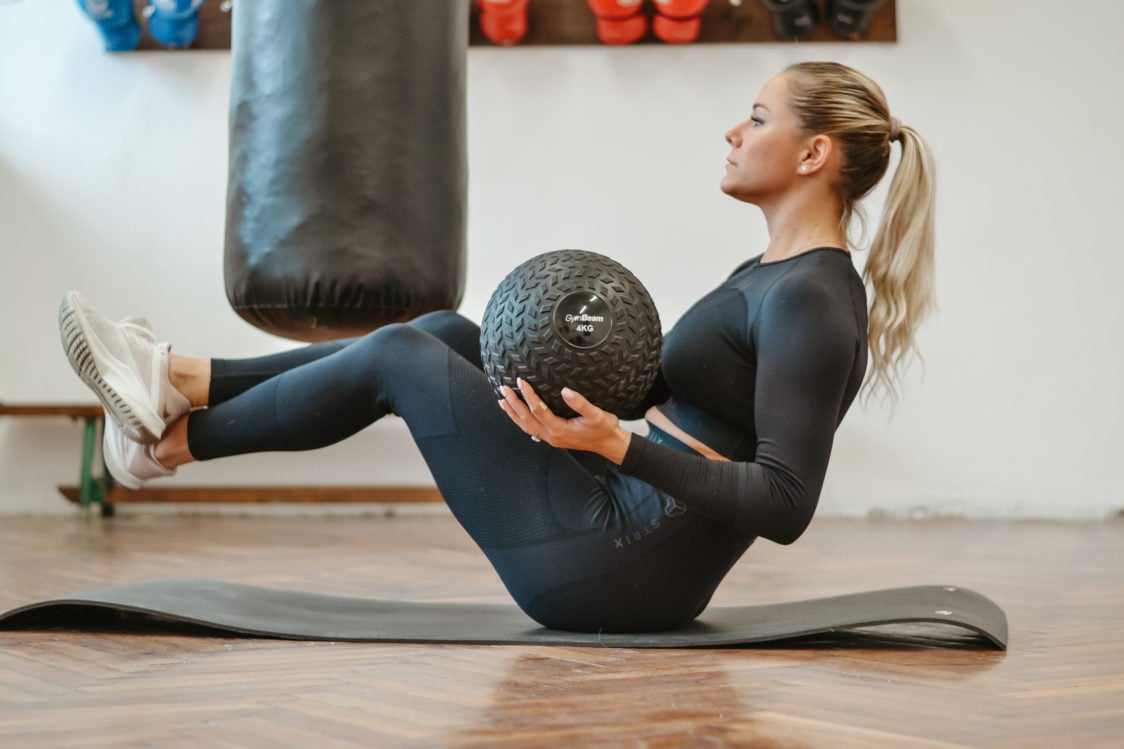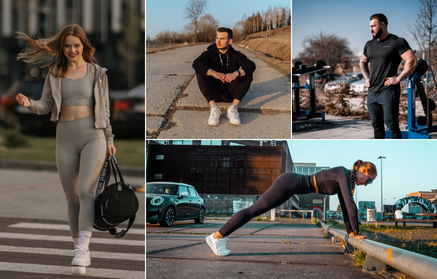Table of Contents
Engaging in any sport brings with it not only successes, but also various pitfalls. These occur mainly at the beginning, when you’re more reserved and afraid that you might mess something up. Gradually, you start comparing yourself with others and waging a battle in your head. And that can really have an impact on achieving your goals and overall results. In reality, it can look like, for example, coming to the gym and instead of asking a trainer or a more experienced athlete for an advice, you focus on unimportant things.
All this just to avoid the feeling that someone is looking at you and judging you. And in order to completely get rid of the need to think about what others think of you, you just go and walk on a treadmill for a bit. But now you start thinking about that fitness model or influencer from Instagram and about how you should lift weights and do things that they do so that you look as good as them. If this scenario seems familiar, you’re definitely not alone.
Whether you swim, do strength training, play football, hockey or any other sport, if your head is not in the right place, your performance suffers. That’s when you start to doubt yourself and fear failure. This can be one of the signs that you lack self-confidence. So today we’re going to look at some tips to help you master the mental battle and improve your confidence in sports.
Why self-confidence is so important in sports
Before we begin, it is necessary to understand why self-confidence is so important in sports. It helps you to perform better and makes you feel good about yourself. A study published in the renowned Journal of Sports Sciences looked at this issue and found that high self-confidence improves performance through the positive influence of one’s thoughts. [1]
In addition to improving your performance, self-confidence in sports can help you:
- better utilize the cognitive skills necessary for athletic success. This is, for example, memory, thinking, perception, attention or decision-making. All of these manifest themselves to a certain degree in all sports.
- better handle the pressure to perform, either professionally or when comparing yourself to others
- reach your peak potential and successfully cope with adverse situations [2]
Of course, low self-confidence can lead to the opposite. This is why athletes lose faith in their abilities and are unable to perform at their best.
7 tips on how to build self-confidence in sports
Below you will find some effective tips to help you build your self-confidence in the sports.

1. Identify the cause of your fears
Concerns in sports are based on psychological threat. It is about how a person perceives the importance of performance or what others think of them. When you’re in the gym, these thoughts can overwhelm you and restrict you to the point that you don’t finish your planned training. The fear itself can also be related to bad sports results or to factors that you cannot influence, but despite this, you are waging an internal battle in your head.
Therefore, it is important to identify the cause of the concerns that cause the fear of failure. It is necessary to understand that thoughts like – ”Today I have to be perfect” or ”I have to analyze my mistakes, immediately correct them and never repeat them”, can lead to hesitant and not optimal performance. As in everyday life, it is therefore important to adopt a healthy attitude and have realistic expectations. But at the same time accept the fact that people naturally make mistakes and learn to control it so that it doesn’t affect your performance or results. It is said that it’s only those who do nothing that make no mistakes. That’s not what you want, right? Your goal should be growth and mistakes and failures are an inseparable part of it. [3]
2. Focus on what you can influence
Sports success is a mixture of different factors and variables. Not all of them always depend on you and your influence. This applies, for example, if you play team sports such as football, hockey or handball, where success depends on the entire team. You cannot influence the weather, the referee, the opponents or the individual performances of your teammates.
You have to realize that there are times when it doesn’t matter how hard you train. Not even on how you perform on the field or as an individual athlete. An example of what is in your hands could be getting up in the morning, washing your face, getting dressed, tying your shoes and going for a run. On the other hand, you cannot change, for example, what the weather will be like, which will ultimately affect your performance. There are always going to be factors that you cannot influence and that can lead to failure or dissatisfaction. Therefore, you should learn to dismiss the unpredictable aspects and focus on what you, as an individual, can influence. It is up to you, for example, how diligent you’ll be with your training, how responsibly you follow your healthy diet or how much time you spend getting ready. After all, hard work always pays off and bears fruit in the end. [4]
You might be interested in these products:
3. Remember your previous achievements
Remembering your past definitely helps in the process of building self-confidence. Here we mean the things you have achieved. How did you feel in that situation? How much did it boost your confidence? What emotions did you experience? Remembering all the good things you have achieved in sports can help you regain your self-confidence.
A retrospective that takes place as part of the evaluation after training or a match can also help. This is when you typically think back and analyse your performance. Try to remember the good and bad aspects that had a good or bad effect on your performance. Retrospective is best used at any time after a match, training or competition, when the whole event is still vividly in your mind. However, you should definitely not burden your thoughts with it during the performance, because it can paralyse you and affect the result. [5]

4. Think about yourself, not about others
This applies not only in sports. Often, you are the main cause for the fear and anxiety you feel and you become your own enemy. Most of the time, it’s because you invest too much energy in comparing yourself to others. If you do sports professionally, these would mainly be your opponents and rivals.
You might compare yourself to other people in the gym you go to, but this feeling can be present at even if you are at home. All you need to do is visit one of the social networks and you’ll see fitness influencers with their perfect looks everywhere. People often don’t realize that behind their perfection lies a lot of hard work and demanding training under the supervision of the best trainers and nutritional specialists.
However, it will be best for your sports confidence if you stop putting other people on a pedestal. Each of us lives a different life, we have different worries, obligations, a different daily routine. Most adults have to go to work, take care of the household, family or have other responsibilities. Remember that everyone is doing their best. Concentrate on your strengths and focus on your own goal. Every small or big success will then contribute to increasing your self-confidence, whether in sports or in life. [6]
If you are interested in what is hidden behind the perfect appearance of famous actors and actresses, be sure to check out our article Training and Eating Routine of Thor, Superman and Other Hollywood.

5. Invest in sportswear
Clothes make the man and the same is true in the sports field. For example, in the gym, many people often resort to old casual clothes. They are afraid to wear sportswear because they think they will look bad in them or that they are not professional enough to wear them. Ultimately, this all just contributes to low self-confidence. By wearing unsuitable clothes, you might be just reinforcing your lack of self-worth.
However, regardless of your figure, you should think about feeling comfortable and confident during your training. This is how you can create a healthy, positive relationship not only with exercise, but also with your own body. Nowadays, it’s really easy to find a wide range of sportswear which will give you confidence in your appearance. At the same time, it has a number of functional properties that you will find useful during training.
Sportswear can boost your confidence in many ways. For example, you can try:
- exchange your old, oversized clothes for pieces that fit nicely, that are not too tight but not too loose at the same time. You can choose pieces with a motivational slogan or ones that reflect your taste. Aim for a fit that flatters your figure and makes you feel good.
- experiment with your favourite colours that will brighten your day, improve your mood and help you feel more energetic.
- ladies can try investing in a high-quality and functional sports bra that will allow them to feel comfortable during all activities. In addition, it can also offer functional features such as reliable sweat protection and firm positioning even throughout the toughest training. You can also choose a design that looks good and gives you confidence.
- think of a proportional balance that will bring attention to your strengths. If you decide for a looser top, wear leggings to slim down the lower part of your body. If you choose loose bottoms, your top shouldn’t be loose so that it doesn’t look like you are wearing the clothes of your older siblings.
- play with your style and don’t stick to just one set. Choose several pieces that can be combined in different ways to make the outfit a little more fun and colourful. [7]
Sportswear can not only boost your confidence, but also improve your performance. Functional clothes can also help reduce the risk of injury. They can also wick sweat away, support range of motion or positively influence regeneration. [8]
If you are interested in this topic and want to learn more about the benefits that a good choice of clothing can bring to sports, read our article Functional Clothing: Why It Matters and How It Can Help Improve Your Performance.

6. Don’t take failures too hard
One must learn to handle failure in order to gradually work towards success. Even Rome wasn’t built in a day, and the same is true in sports and life. If you’re not doing that well right now, use the loss as a steppingstone to move forward. In addition, it can also inspire you to perform better next time. Feel free to skip training tomorrow and treat yourself to the comfort of the couch, but then don’t forget to pick yourself back up and start again. Because you only fail when you stop trying. [9]

7. Be confident in what you are doing
In order to exercise confidently, you should believe in what you are doing. Whether it’s your diet, your training plan or the accessories you use. The last point mainly concerns beginners, who may be shy to train in a gym because they don’t know how to use the machines and equipment. If you are one of them, familiarize yourself with the place in advance. Ask for the advice of a trainer or an employee of the fitness centre, who will certainly be happy to help you.
In case you are wondering how to overcome your fear of gyms and feel more confident, be sure to read our article 10 Tips for Beginners For Quick and Sustainable Progress in the Gym. You will find more tips that will help you increase your self-confidence.
Conclusion
After all, building self-confidence in sports or in everyday life may not be as difficult as it might seem at first glance. Just follow the simple tips from our article and you’ll see for yourself if it really works. No matter if you are trying to work on the best version of yourself in the gym, running, swimming or in team sports. There are always ways to move forward, boost your performance, or lift your spirits when you’re not doing well. Once again, the old saying applies: “You only fail when you stop trying”. Good luck on your journey!
What helps you with self-confidence in sports? If the article was useful for you, feel free to share it with your friends.
[1] Kate Hays, Owen Thomas, Ian Maynard & Mark Bawden - The role of confidence in world-class sport performance – https://www.tandfonline.com/doi/pdf/10.1080/02640410903089798
[2] HOW TO HELP IMPROVE AN ATHLETE’S CONFIDENCE – https://blog.innerdrive.co.uk/sports/how-to-improve-an-athletes-confidence
[3] Dr. Patrick J. Cohn - 7 STRATEGIES TO HELP YOUR ATHLETE BE MORE CONFIDENT – https://www.bluestarlacrosse.com/news_article/show/727837-7-strategies-to-help-your-athlete-be-more-confident
[4] Will Hinch - Self confidence in sport: 9 Steps to improving it – https://blog.pitchero.com/self-confidence-in-sport-9-steps-to-improving-it
[5] Gobinder Gill - BUILDING SELF-CONFIDENCE IN SPORT – https://believeperform.com/building-self-confidence-in-sport/
[6] Octavia H. Zahrt, Alia J. Crum - Perceived Physical Activity and Mortality: Evidence From Three Nationally Representative U.S. Samples – https://www.apa.org/pubs/journals/releases/hea-hea0000531.pdf
[7] Jacynth Bassett - Five ways to feel confident in activewear – https://henpicked.net/five-ways-to-feel-confident-in-activewear/
[8] Niti Pawar - How is Sports Apparel Important for Improving an Athlete’s Performance? – https://www.researchdive.com/blog/how-is-sports-apparel-important-for-improving-an-athletes-performance
[9] How Do Athletes Gain Self-Confidence? 6 Self-Confidence Building Tips – https://restoic.com/blogs/blog/how-do-athletes-gain-self-confidence-6-self-confidence-building-tips

